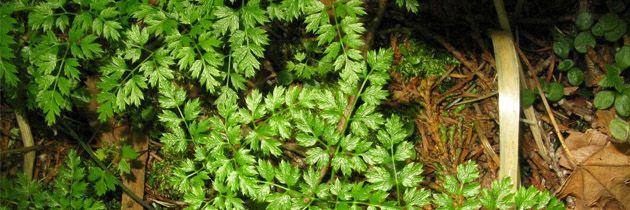Plants rich in berberine have been used for thousands of years in Chinese, Ayurvedic, and other traditional medical systems for supporting the digestive tract and promoting healthy lung function.
Today, berberine is isolated and extracted as a potent herbal therapy. Clinical research supporting the benefits of berberine is extensive and robust. In the past five years alone, there have been 585 scientific journal articles published concerning berberine for human health.
Benefits of Berberine:*
As a supplement, berberine is used for a wide range of purposes. It is particularly known to support:
- Metabolic function
- Gut health and a balanced microbiome
- Liver health
- Healthy blood glucose levels
- Healthy circulation
How Berberine Works*
Alkaloids have demonstrated pharmacological properties, and this is certainly true of berberine.
One of the most important effects of berberine is to support an enzyme called Adenosine Monophosphate-Activated Protein Kinase (AMPK). AMPK supports healthy blood sugar levels, liver function, digestion, and energy levels.
Berberine also appears to promote a balanced gut microbiome, soothe the intestines, and promote healthy bowel movements.
Side effects: Berberine is overall very safe. However, you should speak with your doctor before taking berberine if you are on medications that lower blood sugar or blood pressure.
Berberine is best used for 1-6 months to restore balance to the gut microbiome and support digestion. Once digestive function is restored, berberine can be discontinued.
Do not take berberine if you are pregnant or breastfeeding.
Avoid using berberine if you are taking cyclosporine (Neoral, Sandimmune).
If you experience GI discomfort when taking berberine, consider taking smaller servings spread throughout the day and after meals.
References
1. Cicero AF, Baggioni A. Berberine and Its Role in Chronic Disease. Advances in Experimental Medicine and Biology. 2016; 928:27-45.
2. Chu M et al. Berberine: A Medicinal Compound for the Treatment of Bacterial Infections. Clinical Microbiology. 2014; 3:150.
3. da Silva AR et al. Berberine Antifungal Activity in Fluconazole-Resistant Pathogenic Yeasts: Action Mechanism Evaluated by Flow Cytometry and Biofilm Growth Inhibition in Candida spp. Antimicrobial Agents and Chemotherapy. 2016 May 23; 60(6):3551-7.
4. Habtemariam S. Berberine and inflammatory bowel disease: A concise review. Pharmacological Research. 2016 Nov; 113(Pt A):592-599.
5. Sun R et al. Orally Administered Berberine Modulates Hepatic Lipid Metabolism by Altering Microbial Bile Acid Metabolism and the Intestinal FXR Signaling Pathway. Molecular Pharmacology. 2017 Feb; 91(2):110-122.
6. Wang Y et al. Berberine-induced bioactive metabolites of the gut microbiota improve energy metabolism. Metabolism. 2017 May; 70:72-84.
7. Winder W et al. AMP-activated protein kinase, a metabolic master switch: possible roles in type 2 diabetes. American Journal of Physiology. 1999 Jul;277(1 Pt 1):E1-10.
8. Xu JH et al. Berberine protects against diet-induced obesity through regulating metabolic endotoxemia and gut hormone levels. Molecular Medicine Reports. 2017 May; 15(5):2765-2787.
9. Zhang X, et al. Structural Changes of Gut Microbiota during Berberine-Mediated Prevention of Obesity and Insulin Resistance in High-Fat Diet-Fed Rats. PLoS One. 2012; 7(8): e42529.
Published online 2012 Aug 3.




